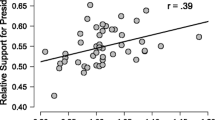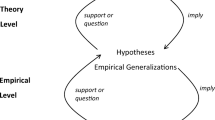Abstract
Isaac Levi has long criticized causal decisiontheory on the grounds that it requiresdeliberating agents to make predictions abouttheir own actions. A rational agent cannot, heclaims, see herself as free to choose an actwhile simultaneously making a prediction abouther likelihood of performing it. Levi is wrongon both points. First, nothing in causaldecision theory forces agents to makepredictions about their own acts. Second,Levi's arguments for the ``deliberation crowdsout prediction thesis'' rely on a flawed modelof the measurement of belief. Moreover, theability of agents to adopt beliefs about theirown acts during deliberation is essentialto any plausible account of human agency andfreedom. Though these beliefs play no part inthe rationalization of actions, they arerequired to account for the causalgenesis of behavior. To explain the causes ofactions we must recognize that (a) an agentcannot see herself as entirely free in thematter of A unless she believes herdecision to perform A will cause A,and (b) she cannot come to a deliberatedecision about A unless she adoptsbeliefs about her decisions. FollowingElizabeth Anscombe and David Velleman, I arguethat an agent's beliefs about her own decisionsare self-fulfilling, and that this can beused to explain away the seeming paradoxicalfeatures of act probabilities.
Similar content being viewed by others
Author information
Authors and Affiliations
Rights and permissions
About this article
Cite this article
Joyce, J.M. Levi on Causal Decision Theory and the Possibility of Predicting One's Own Actions. Philosophical Studies 110, 69–102 (2002). https://doi.org/10.1023/A:1019839429878
Issue Date:
DOI: https://doi.org/10.1023/A:1019839429878




